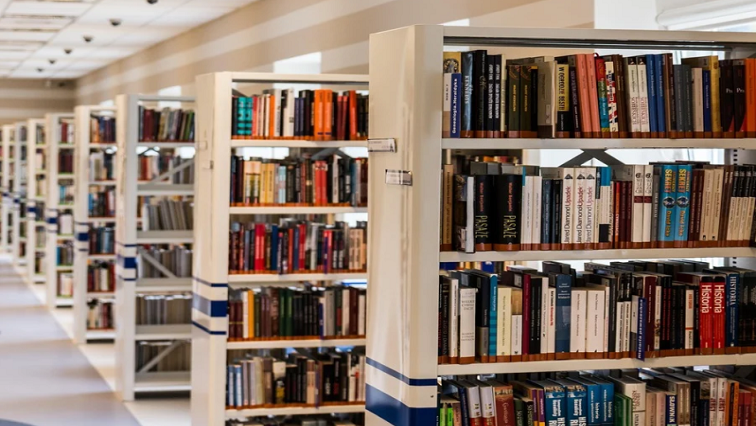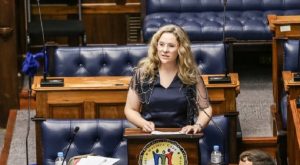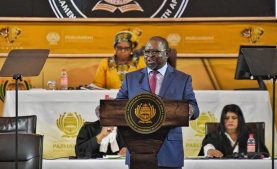As usual, education gets the lion’s share of the budget. Its allocation goes up from R16 billion to R403 billion for learning and culture this year. The bulk of this amount will go to the Department of Basic Education to improve school infrastructure.

The Department of Social Development gets the second biggest slice of the cake with R335 billion this year.
But the amount is a massive R78 billion less compared to last year.
R2 billion has been earmarked to extend the popular R350 Social Relief of Distress Grant until the end of April.
But spending on social grants is set to decrease by R6 billion this year despite the number of beneficiaries expected to grow by 300 000.
- Old-Age and Disability Grants will increase by just R30 to R1 890 a month from April.
- The Child Support Grant will go up by R15 to R460 a month.
- The Foster Care Grant will increase by R10 to R1 050 a month.
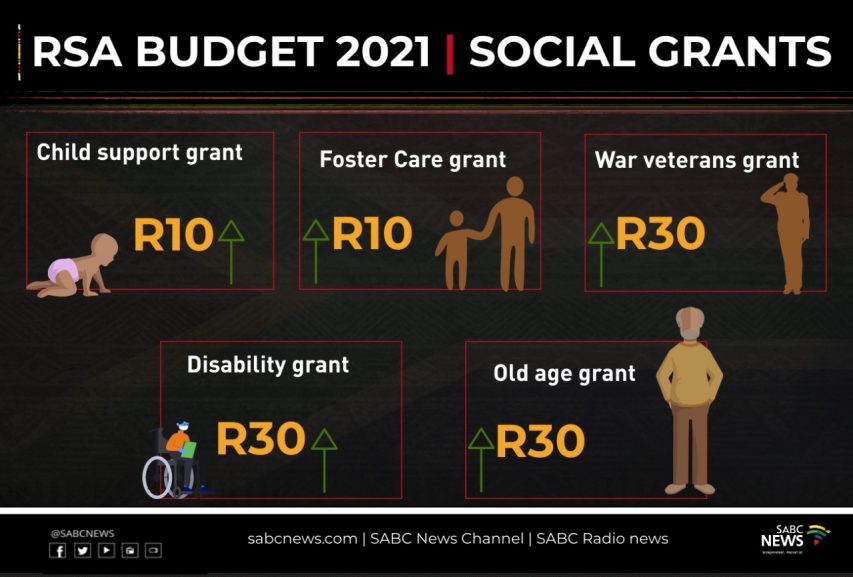
Health gets the third biggest share of the budget. Its allocation increases by R3 billion to R249 billion. Of that amount, R8 billion will be distributed to provinces to sustain their COVID- 19 prevention, screening, and testing activities and to improve hospital capacity.
The police budget has been cut by R2 billion to R104.5 billion this year. The Department of Defence sees its budget reduced by R7.5 billion.
The Department of Home Affairs’ budget goes down by R1 billion and the Department of Justice and Correctional Services’ budget remains unchanged at R48.5 billion.
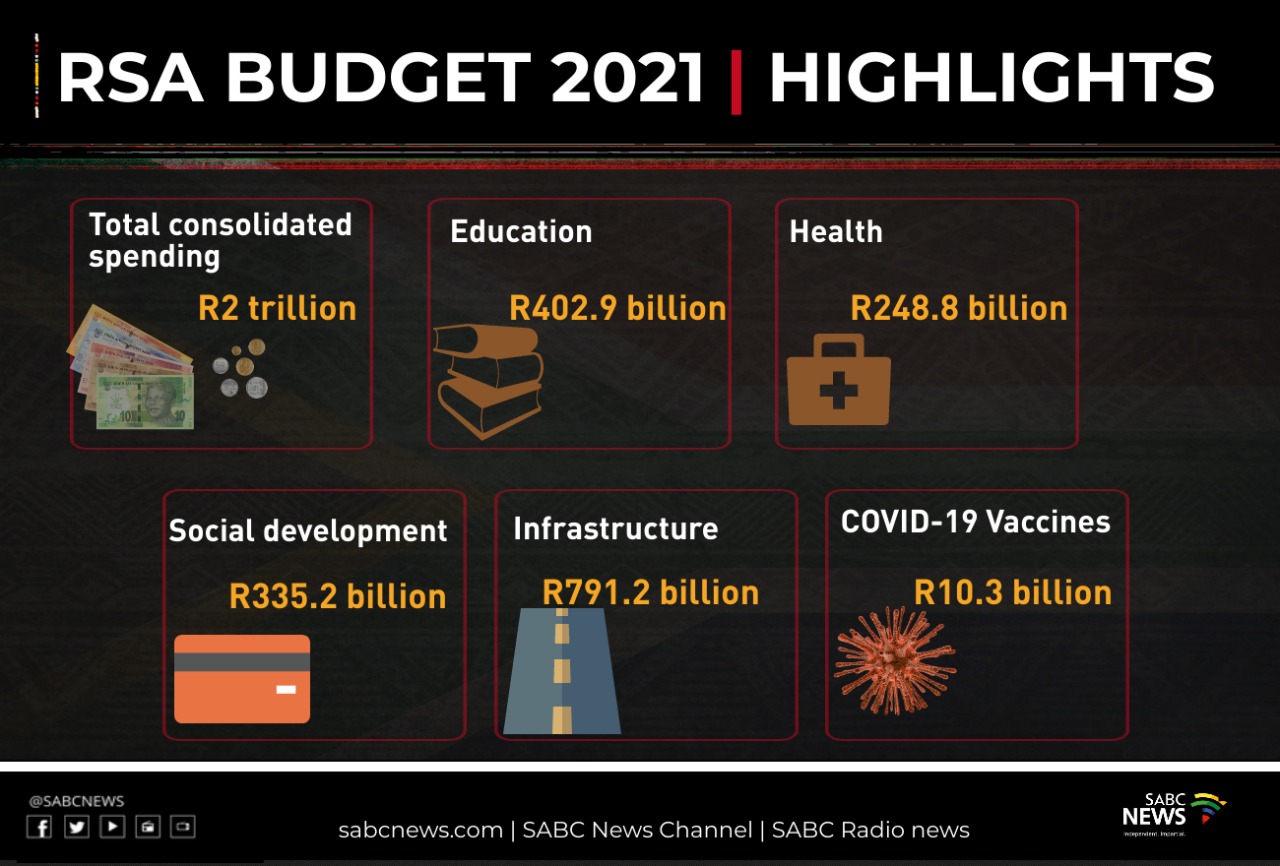
While largely expected, the spending cuts on social services will undoubtedly generate a lot of heated debate in the country.
The finance minister was adamant that the move does not amount to austerity which is a much-hated term by organized labour and other leftist organizations. They are likely to disagree.
Minister Tito Mboweni’s full speech:
Informal settlements
Finance Minister has proposed new conditional grants to provinces and municipalities to upgrade 900 informal settlements. Communities and community-based organisations will lead the planning and design of upgrades, with R24.8 billion allocated over the next three years to secure occupation and provide basic services.
In addition, R14.6 billion is allocated to finalise outstanding land restitution claims and support land reform initiatives, including subsistence and smallholder farmers.
Also, R1.2 billion will be set aside in the blended finance programme earmarked for emerging commercial farmers. “A total MTEF of R7 billion is made available to the land bank.”
There are many priorities but South Africa’s debt repayments are eating into its ability to spend on other things. Senior Research Fellow and Trade Collective and economic analyst, Lebohang Pheko explains:
Wage bill
The 2021 budget proposes marginal salary increases for government employees over the next three years. The budget recommends a 1.2% salary increase for public sector workers in the next three years.
The share of public-service wages is currently sitting at about 47% of government revenues. The government has warned that a departure from this in the forthcoming wage agreement will be unaffordable and compromise debt stabilisation.
“The Minister of Public Service and Administration is working with our partners in organising labour to achieve a fair public sector compensation when new negotiations resume later this year.”


